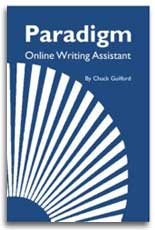It's helpful to think of grammar and mechanics as matters of convention or mutual agreement among language users. Such agreement is necessary for language to work. To communicate with even the simplest words, for example, we must agree on their meaning. Conventions of grammar come partly from tradition and partly from a need to be clear and accurate. And like other conventions, rules of grammar change continually.
Learning grammar, then, isn't just a matter of memorizing rigid laws laid down by English teachers, but of attending to how our language is actually used today: how it works, why it works the way it does, how it affects others.
And like other conventions, rules of grammar change continually.
If you've used the language most of your life, you've developed a feel for its grammar from experiences with family and friends, and from television, newspapers, movies, and books. If someone wrote, "This like book I," you'd sense something was wrong. If asked what, you might reply correctly that the words aren't in the right order and so the sentence is awkward and hard to understand. To correct it, you might edit it to read, "I like this book." If asked why you changed it, you could say, "Well, it just sounds better this way. The words are in the right order, and the meaning is more clear."
If you're new to the language, welcome. Throughout the world, millions of people have learned to use English effectively. With effort and persistence, you'll soon be among them. In learning more about grammar, you'll learn why we use language as we do. As you become attuned to the whys and hows of language use, you'll feel more confident about expressing yourself. Instead of seeing grammar as an obstacle, you'll find that it helps keep your writing clear, fluid, and readable.



